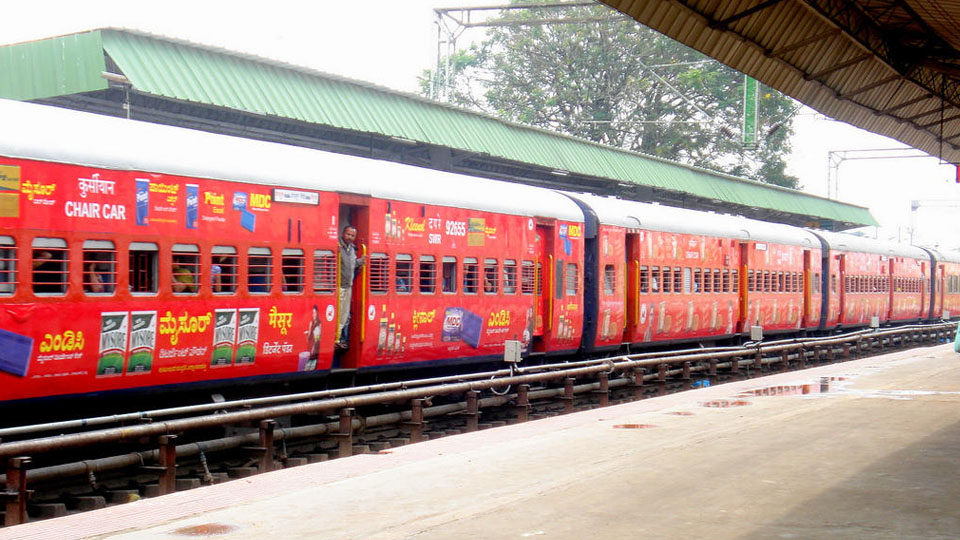Mysuru: Panic and confusion prevailed this morning when over 20 bogies of Chamundi Express got detached from the engine near Byadarahalli after Pandavapura. The snag was noticed only after the train travelled a distance of half-a-kilometre. As a result of this, the train reached Bengaluru 45 minutes late.
According to eyewitnesses, the train, carrying thousands of regular office-goers and other passengers, left the City Railway Station in Mysuru at 6.45 am. It reached Pandavapura at around 7.15 am and proceeded towards Bengaluru. As the train neared the area between Nelamane and Byadarahalli, over 20 bogies got detached from the engine and they stopped midway while the locomotive engine and five bogies proceeded further.
Wondering why the train stopped suddenly, a few passengers alighted from the bogies only to realise that their coaches were detached and they had nowhere to go. Confusion and panic prevailed for some time and some of the passengers immediately made calls to the Railway officials and informed the next station.
The train’s loco pilot was alerted and he took the train back to the stretch between Nelamane and Byadarahalli and the engineers reattached the bogies.
There was a delay of 45 minutes due to this snag and the train reached Krantivira Sangolli Rayanna Station in Bengaluru 45 minutes late. It usually reaches Bengaluru at 9.40 am.
Railway officials have, however, denied the incident with most of them remaining tight-lipped. Sources said that Pandavapura comes under Hubballi Division and they would know about the incident. While the Public Relation Officer (PRO) in Bengaluru denied the incident, Hubballi PRO was not responding to calls. An official at the Mysuru Station said on condition of anonymity that the train’s screw coupling became loose and the coaches were detached.








Typical India. If this happened in the West, there would be alarm at the driver cabin sounded automatically. Long way to go before this country comes out of the third world status
Pathetic Indian Railways. Nothing will improve over the ages due to inefficient technical staff.